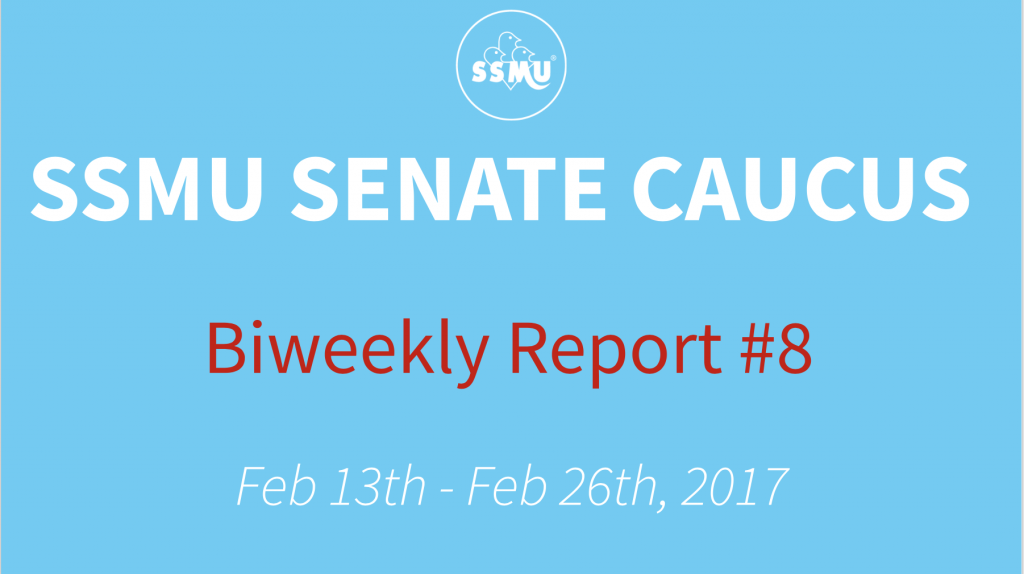
Happy Reading Week everyone! As we approach the halfway point in the semester the Senators have been hustling to get stuff done – read about it here in their latest biweekly report! You can also find our previous biweekly reports here, or in the Senators’ blog.
A few highlights:
- Put out episode #1 of the Senators Vlog about Food @ McGill
- Conducted an AMA about January Senate
- Discussed a potential project that would get professors to include student rights, course accommodation info in their syllabi
- Discussed the Open Education Resources project
Minutes of each Senate Caucus meeting is available upon request via email.
If you’re interested in attending a Senate Caucus meeting to learn more about what the Senators do, feel free to email me (the UA Secretary) to get more information. Senate Caucus meetings are held every Monday at 6:30 PM in the SSMU Office.
